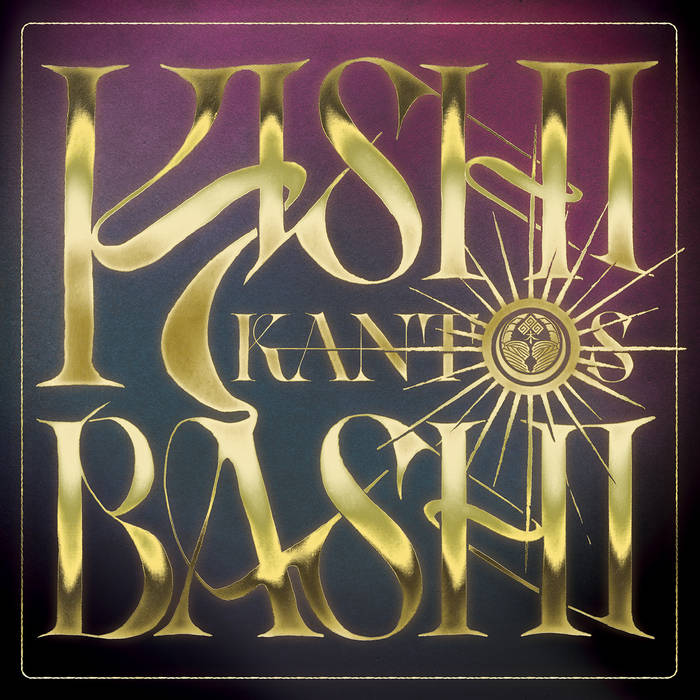
The marketing materials for Kishi Bashi‘s fifth and most recent LP Kantos describe it as “a party album about the possible end of humanity as we know it, at turns deeply unsettling and sublimely joyful”, one wherein he “ruminates on AI, transhumanism, and humanity’s troubled fate”. Yet between those two poles—the “unsettling” and the “joyful”, the “party” and the “end of the world”–it remains as obvious as ever to which side Kishi Bashi remains planted: his indie-label is called “Joyful Recordings” after all, and that not ironically. Christ said “my joy is full” in 3 Nephi 17:20, and Ammon in Alma 27:17 had joy so great it exhausted his strength, and that is all the same level of joy that Kishi Bashi seeks after in all his albums. Some people are simply irrepressible optimists and romantics no matter how bad things get, and Mr. Kaoru Ishibashi is one of those blessed souls.

This is the same artist, after all, whose last LP, 2019’s critically-acclaimed Omoiyari, was all about the Japanese-American internment camps of WWII, and was written in explicit response to the vicious child separation policy at the border and the cruel xenophobia of the Trump administration generally; as a Japanese-American himself, he felt the resurgence of open white-supremacism in this country deep within his bones. Yet though he tried his darndest to stay melancholy and brooding on tracks like “Summer of ’42”, “Angeline,” and “Violin Tsunami,” he ultimately couldn’t help himself: on other songs like “Penny Rabbit and Summer Bear,” “Marigolds,” and even his critique of the president at the time “F Delano,” he undeniably produced some of his most upbeat tracks since 2014’s “The Ballad of Mr. Steak” and “Philosophize In It! Chemicalize With It!“. No matter what he tries to write about, no matter how dark and depressing the subject matter, he can’t help but cheer himself up.
In fact, what strangely stands out the most about Kantos is how, despite him claiming it to be a balancing act between the “deeply unsettling and sublimely joyful”, he largely dispenses with the darkness entirely this go around. Even his gorgeous debut 151a threw in “I Am The Anti-Christ To You” to break up all that refreshing joy; even the sprightly Lighght ended with the haunting “In Fantasia“; even Sonderlust disrupted all that bouncy Electro-Pop with “Statues in the Gallery“; even the bluegrass Emigrant EP featured a cover of Regina Spektor’s “Laughing With.” Like Ammon and Alma and Christ himself, Kishi Bashi’s has never been a naive joy, but one that accurately intuits there must needs be “opposition in all things,” that we can only experience such exceeding joy after we have suffered real anguish indeed. (It may here be relevant that Cantos are also the name of the chapter divisions in Dante’s Divine Comedy—a journey to Heaven that can only be accomplished by first traveling through Hell.) But Kantos, by contrast, might in fact be his first studio album in his decade-plus career to be devoid of even a single song of obvious darkness. He may claim that this is “a party album about the possible end of humanity as we know it,” but it remains first and foremost a party album.

Not that that’s necessarily a bad thing, or even a self-contradictory one; this site has discussed before how no less as a joyous genre as Funk has its etymological roots in transforming a funeral into a party, and a party into a funeral. Such in fact is what we are purportedly looking forward to as members of the Church of Jesus Christ of Latter-day Saints: not just the “possible” but the assured “end of humanity as we know it” in these Last Days, which it turns out is not cause for fear, but celebration. As Neal A. Maxwell declared in his very first General Conference talk, “Yes, Armageddon lies ahead. But so does Adam-ondi-Ahman!”
Nevertheless, the operative phrase with Kantos remains “party album”, in the sense that it is very much an album you would put on in the background of a party. This is not headphones music. If there is perhaps some darkness and “rumination” in the lyrics themselves, you likely aren’t going to notice them, because you’ll either be too busy chatting with friends, flirting, or dancing around casually to notice. (In this sense, Kantos works in the same register as Outkast’s “Hey Ya!“, another dance track so infectious that most people don’t even notice it’s about a break-up).
This is not to say that Kantos is a bad album: there is always a baseline level of competence with the classically-trained Kishi Bashi, and this brisk album is never less than enjoyable, and doesn’t outstay its welcome. Nonetheless, there is no single track here that gets under your skin like his 2010s output did. Although he does try out some new genres to some success here and there (e.g. Funk saxophones on “Lilliputan Chop,” a Latin beat on “Analógico Brasil,” a guest-rapper on “Make Believe“), largely all the tracks blend and blur together. If it has no filler tracks, it also has no stand-outs, either. Perhaps him saying out loud that he sought on this LP to find a balance between the “unsettling” and the “joyful” broke the spell a bit, because he was now explaining what his music has always done, without him ever having to explain it. Some things—like the Holy Spirit, like the peace which surpasses understanding, like joy itself—should never be explained.
